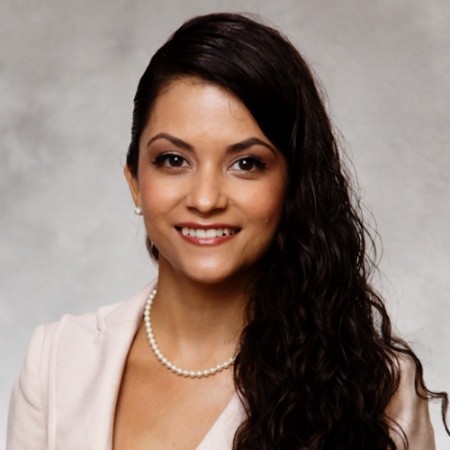Don’t Just Focus on the Premium
Do you know what your lawyer’s professional liability (LPL) insurance covers before you need to know what it actually covers?
To avoid finding yourself with LPL insurance that does not cover what you truly need- choose the one that is right for you. Here are seven things to consider in choosing the right LPL insurance for you.
1. Different Ways to Purchase
There are several different types of professionals that may assist you in finding the right LPL insurance for you. Understanding the different types of insurance professionals may help you understand what to expect. Some insurance agents represent one or several insurance carriers (insurance agents) while others will represent you (insurance brokers). Lawyers Mutual Insurance underwriters work directly with you in finding the right coverage for you. This provides insureds with valuable information and transparency.
2. Different Carrier Types
Insurance carriers are regulated on a state-by-state basis, different types of carriers have different regulations, requirements for capitalization, and differences in what may occur when the carrier is unable to honor its claims. Policyholders in a mutual carrier have a collective ownership interest in the carrier’s value. With mutual carriers the policyholder may be paid dividends when financial results exceed expectations. Lawyers Mutual was established by the attorneys of North Carolina, is owned by our policyholders, has paid dividends twelve times since 1999 with nearly $8 million dollars returned to policyholder since 2011.
3. What is Actually covered?
Insurance carriers are not created equally. Ask the carrier if they offer risk management advice, claim avoidance and repair assistance? Will you be working with an attorney or an adjuster throughout the process and when a claim arises? Ultimately, the claims process can be stressful and tedious, having a local and experienced adjuster can make all the difference. You will want to ensure the carrier will be able to cover your practice area and specialization. The direct communication with Lawyers Mutual Insurance underwriters and the claims team allows you to ask questions and discover that claims avoidance and repair assistance is provided, in many simple situations without triggering your deductible. Our claims attorneys and several of our underwriters were in private practice prior to joining Lawyers Mutual and we can relate to the situations you may be facing.
4. What is the Policy Type?
If a claim arises you will want to know how to properly submit it to your carrier. Professional liability policies are written on a “claims made” basis meaning they cover the claims that are made against the policy during the policy term – this is different from other types of insurance where the policy covers losses occurring during the policy term regardless of when a claim is actually made (“occurrence” policies). Most LPL policies are “claims made and reported” policies, which require the claim to not only be made against the firm during the policy term but also reported to the carrier during that policy term. Early reporting is critical to ensure your coverage remains intact. Additionally, at Lawyers Mutual we have a long history of being able to repair or avoid claims if the situation is disclosed early in the process.
5. The Application
As the LPL application becomes part of the policy, it is vital that the information within the application is current and accurate. The information requested is essential for the underwriter to determine what coverage is best for you. The more that is disclosed, the broader the coverage may be and keep in mind that you should update your application with any changes prior to the issuance of the next policy term. Lawyers Mutual Insurance underwriters will be transparent with you on the factors affecting your coverage and pricing. They work to get you coverage the right way.
6. Avoiding Gaps
Coverage for client representation during time spent at a prior firm may be covered if the prior firm maintains an insurance policy or acquires an extended reporting period (ERP) endorsement (ERE). To safeguard against any gaps in coverage, a departing attorney should consider acquiring their own ERP/ERE “tail” coverage. When joining a new firm, attorneys should ensure they know what they will be receiving under the current firm’s insurance and that they are added to the policy in a timely manner. Having a close relationship with your LPL underwriters is a valuable resource as it ensures they will be readily available to assist you during any career transitions. Also, be sure to contact your underwriter prior to leaving the private practice of law – many times an ERE is available at a discount upon your retirement from private practice provided certain conditions have been met.
7. Be Proactive
Keep in mind there are several factors that affect your LPL premium and there are proactive measures you can take to prevent and limit malpractice claims. Your carrier may even reward you for evidence of taking such preventative measures. Lawyer Mutual Insurance provides its insureds with a treasure trove of information in their CLEs and their risk management resources publicly available at LawyersMutualNC.com.
Once you have selected the right LPL for you, ensure you understand your policy completely. Pay special attention to who and what is covered, any conditions and exclusions, endorsements, per-claim and aggregate coverage limits, and defense, settlement, and cancellation provisions.
For you more detailed information and guidance in acquiring the right LPL insurance visit https://nmcdn.io/e186d21f8c7946a19faed23c3da2f0da/556712d9bf0f4cb2a916cc810687d52b/files/risk-management-resources/risk-management-handouts/choosing-your-malpractice-provider/Malpractice_Provider.pdf




